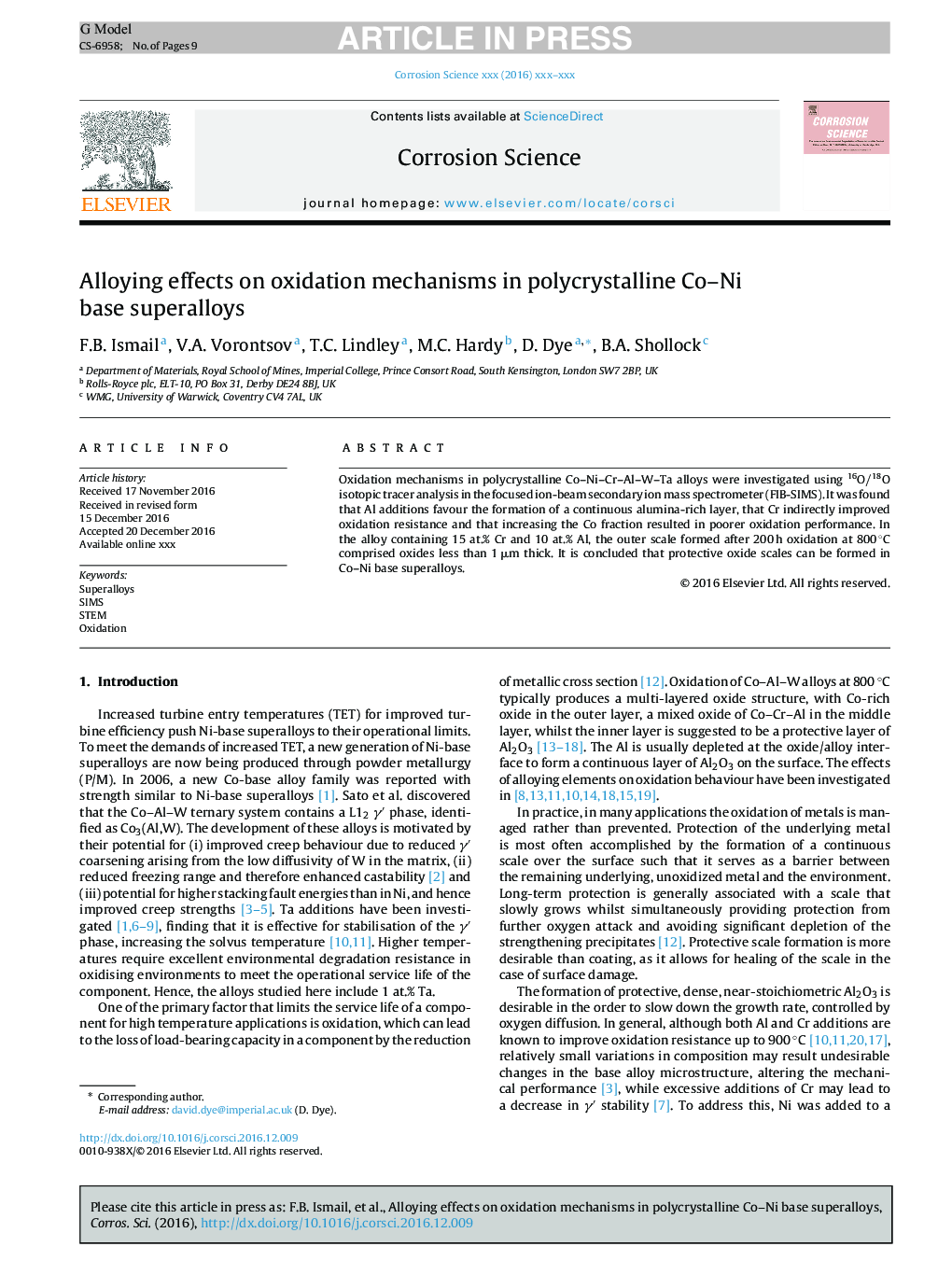| Article ID | Journal | Published Year | Pages | File Type |
|---|---|---|---|---|
| 5440084 | Corrosion Science | 2017 | 9 Pages |
Abstract
Oxidation mechanisms in polycrystalline Co-Ni-Cr-Al-W-Ta alloys were investigated using O16/O18 isotopic tracer analysis in the focused ion-beam secondary ion mass spectrometer (FIB-SIMS). It was found that Al additions favour the formation of a continuous alumina-rich layer, that Cr indirectly improved oxidation resistance and that increasing the Co fraction resulted in poorer oxidation performance. In the alloy containing 15 at.% Cr and 10 at.% Al, the outer scale formed after 200 h oxidation at 800 °C comprised oxides less than 1 μm thick. It is concluded that protective oxide scales can be formed in Co-Ni base superalloys.
Keywords
Related Topics
Physical Sciences and Engineering
Materials Science
Ceramics and Composites
Authors
F.B. Ismail, V.A. Vorontsov, T.C. Lindley, M.C. Hardy, D. Dye, B.A. Shollock,
